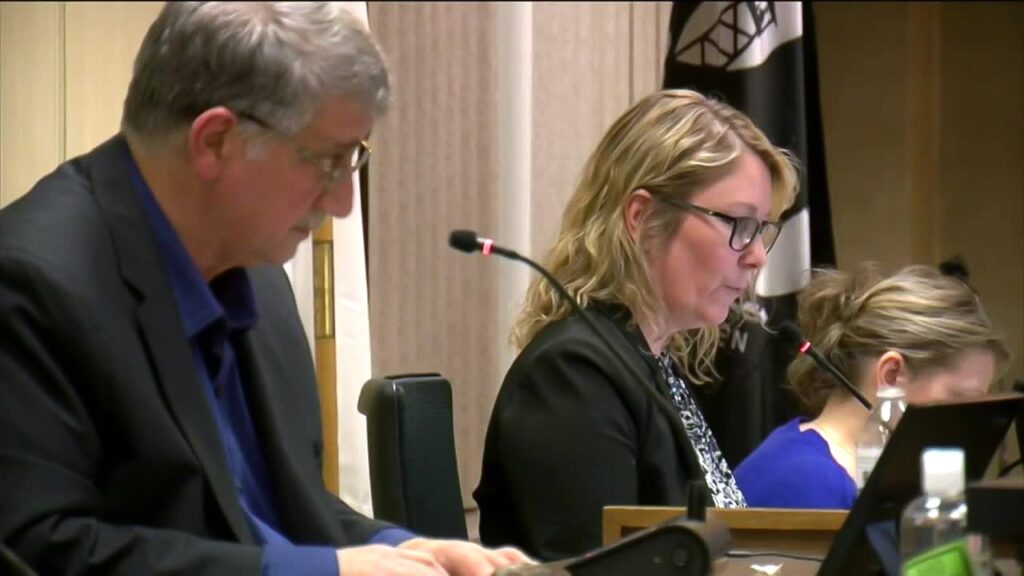On Wednesday night, the Kenosha City Council approved an intergovernmental agreement with the Menominee Tribe’s gaming authority, marking a major step forward for the establishment of a future Hard Rock Casino in the city. Alderpersons voted in favor of the project 11-6 during a session that stretched over three hours, with extensive public participation.
Council members Rocco LaMacchia, David Bogdala, Ruth Dyson, Daniel Prozanski, Anthony Kennedy, Keith Rosenberg, Curt Wilson, Brandi Ferree, Jack Rose, Bill Siel, and Rollin Pizzala voted in favor of the project. In contrast, Dominic Ruffalo, Holly Kangas, Kelly MacKay, David Mau, Eric Haugaard, and Jan Michalski voted against it.
Prozanski, who voted in favor, stated that the concerns raised by his colleagues and some outspoken opponents of the casino, regarding potential increases in crime, devaluation of property values, and Hard Rock’s commitment to seeing the project through, were greatly exaggerated.
“Sixty acres are being purchased. We’re not giving anybody 60 acres,” Prozanski said, as reported by Kenosha News. “It’s a privately funded operation. … This is a big deal.”
Kangas firmly opposed the project, citing her belief that Hard Rock has a history of breaking promises and leaving communities in a state of uncertainty. “The people of the 4th District have asked me to be a ‘no’ vote tonight,” she said.
The approved agreement stipulates that the casino site will be exempt from local property taxes, but the City of Kenosha will receive payments based on gaming revenue.
According to estimates by Matt Schuffert, regional president of Hard Rock, the casino’s total annual revenue is expected to range between 250 and 295 million dollars. The city is anticipated to receive approximately 3% of these net earnings in quarterly payments.
The agreement also calls for escalating annual payments from $100,000 to $2.5 million if net win revenues fall short of the minimum for a given year. These payments are planned for 20 years, with renegotiations every 10 years.
The contract states that there will be an annual payment of 750,000 dollars to local public schools if net profits exceed 2 million dollars. Moreover, starting from the third year, an annual amount of 500,000 dollars will be allocated to the city’s public museums and to support a home acquisition program.
The document also includes an allocation of $1 million for the purchase of advanced life support vehicles and an annual payment of 500,000 dollars for six years for the construction of a new facility that will serve as a police station, fire department, and public works office near the casino complex.
Union Labours expects the generation of about 800 jobs during the two-year construction phase and over 1,000 permanent jobs once the casino is operational. This forecast is a central point in the discussion about the economic impact of the casino in the region.
Casino project rendering
The Menominee Tribe plans to develop the resort off I-94, north of Highway 50, which will include gaming tables, 150 hotel rooms, a pool, a venue for live entertainment, and a Hard Rock Cafe. The City Council’s approval marks a major step for the tribe to proceed with its request to the U.S. Department of the Interior to include the proposed land in federal trust for casino gaming purposes.
The next step in the process is the review of the County Board of Supervisors’ own agreement with the tribe, scheduled for January 16th. Before going to the governor for approval, the proposal must also still go through the federal Bureau of Indian Affairs, which is expected to take place later this year.
Mayor John Antaramian
Mayor John Antaramian expressed satisfaction with the voting on the project. “I think this will have a positive impact on the community on a long-term basis,” he stated, as per Kenosha News. “We’ll go through the process and see how this goes. The compact is a good compact. It’s similar to what we’ve passed in the past and it’s been vetted numerous times.”
Nine years ago, the Kenosha casino project, planned to be built on the site of the former Greyhound Park, received widespread approval, including a “yes” from the Common Council, a “yes” from the county council, and even a “yes” from federal authorities. However, the proposal encountered a decisive hurdle: at Governor Walker’s desk, the response was a “no”.






